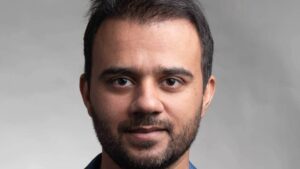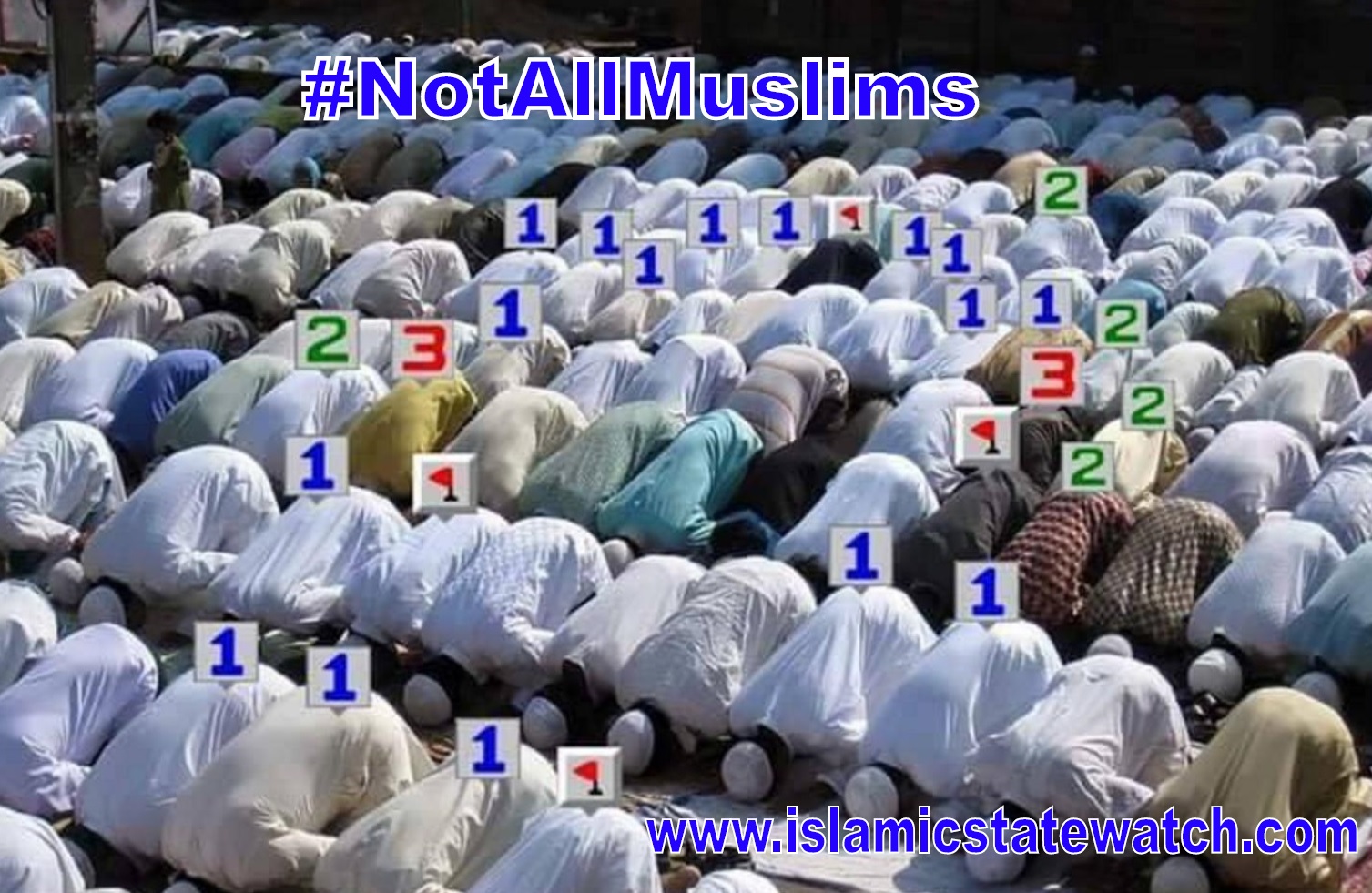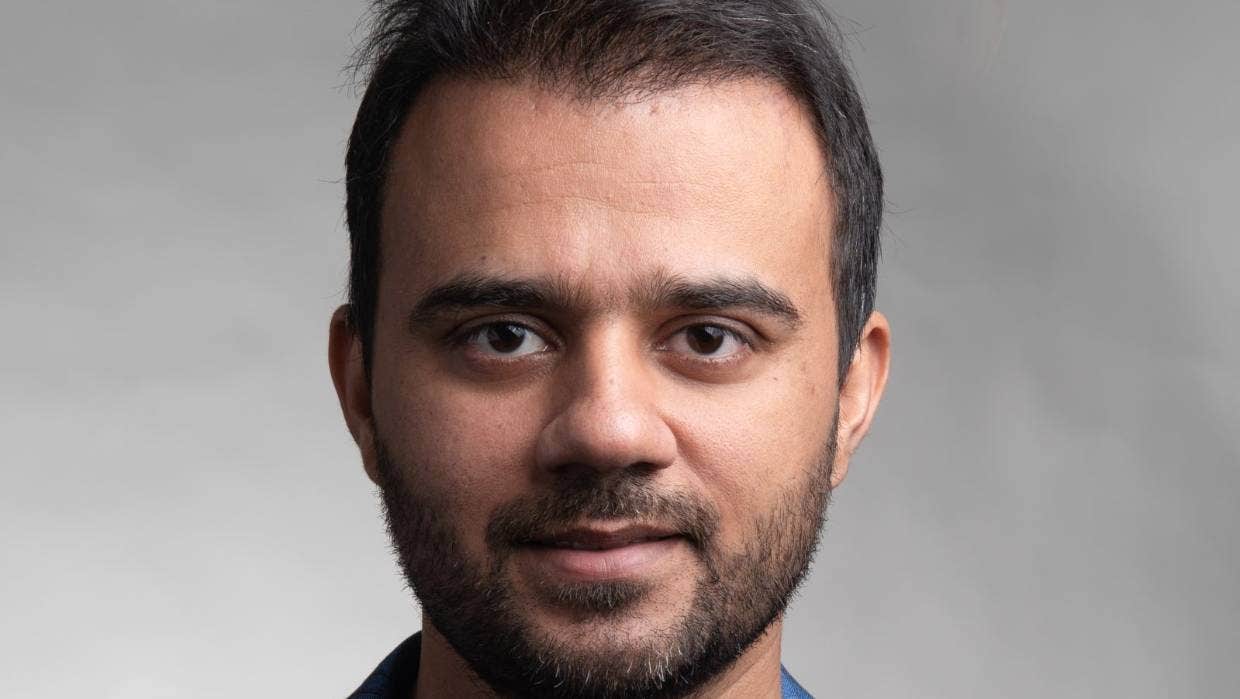Not every Muslim is an extremist, they just all take the same pledge and have the same goals: to follow the prophet’s way of reaching heaven. As long as their good deeds outnumber their bad deeds as measured by sharia standards, they’ll get their 72 virgins, or 72 grapes, depending on what they desire. Any levels of commitment is acceptable to the prophet.
From the Quran they hand out in Queen Street: 4:95. Not equal are those believers remaining [at home] – other than the disabled – and the mujahideen, [who strive and fight] in the cause of God with their wealth and their lives. God has preferred the mujahideen through their wealth and their lives over those who remain [behind], by degrees. And to all [i.e., both] God has promised the best [reward]. But God has preferred the mujahideen over those who remain [behind] with a great reward – 96. Degrees [of high position] from Him and forgiveness and mercy. And God is ever Forgiving and Merciful.
4:100. And whoever emigrates for the cause of God will find on the earth many [alternative] locations and abundance. And whoever leaves his home as an emigrant to God and His Messenger and then death overtakes him – his reward has already become incumbent upon God.
As the good doctor, Muhammad Umar, tells us below, he’s only there to claim the diversity benefits of representing his prophet, without accepting any of the stigma. This man has the role of making Islam acceptable here in New Zealand by promoting the Standard Islamic Narrative (S.I.N). The SIN states that Islam is a religion of peace and sharia law is compatible with western culture.
Not every Muslim, but people like Muhammad, categorise themselves when they claim jobs and welfare based on their diversity status. Not every Muslim, but people like Muhammad, will catagorise themselves when they write media articles on behalf of their diversity group. He’s welcome to give that up at any time.
Also notice that the two countries he lists as ‘secular’ Islamic nations were two of the biggest supporters of Islamic State: Turkey and Malaysia, and also invest heavily into New Zealand mosques.
This from stuff.co.nz:

“Who will live with Isis,” was the comment given under the Facebook flatmate-wanted post of my friend.
“Hope you guys are not wearing suicide jackets,” was slurred when I was standing with some colleagues back in 2017.
“Hey, we don’t like butter chicken curry,” was yelled by a bunch of teens when I was walking in Christchurch city.
Many immigrants face similar sorts of libels and comments on a daily basis.
On the other hand, when a video with the title “why we should not celebrate Christmas,” was posted in one of the WhatsApp groups run by my own tribe, I wrote “merry Christmas everyone,” in reply to that message.
In response, I received some slurs, such as, “you are not Muslim”, “you are acknowledging someone else’s God”.
There are many other similar comments I hear on regular basis from some of my own people, such as, “this is not halal, what you are eating?” “Keep your selective morality to yourself”. “I have never seen you in mosque”.
After hearing such comments, and especially when terrible events like Auckland stabbing happen, where innocent people got injured, I start questioning my identity in New Zealand society.
After March 15, 2019, one of my Kiwi friends came to see us with flowers and tears in her eyes. She was again and again saying, “sorry guys, we failed you, you came to New Zealand with dreams and hopes, we couldn’t protect you”.
At the same time, she was not shy to accept that there are some extremist people present in our society.
Similarly, I am not shy to say that there will be some extremist people present in the Muslim community, and also, there are several conservative people.
But there are many who want to be integrated, who are just like normal day-to-day Kiwis.
Why there are several conservative people present in western societies, why some become extremists, and others become more tolerant and open minded, is very hard to understand.
But one way to comprehend this is by understanding the difference between Islam (faith) and Islamism (ideology, or in other words, the fundamentalist version of islam).
By the end of 19th century, many Muslims were living under European rule, and their power was diminishing.
Turkey and Malaysia went towards secularism and reformism versions of islam. But some Middle Eastern regions went towards Islamism, and the idea that Muslims are lagging behind the west because they are not good Muslims.
In this version, they need to be devoted Muslims and reject the influence of the West in order to gain back glory.
Islamist groups (Islamism inspired) were there before 9/11, but after this incident, the rise of Islamist groups helped shift some Muslims away from their national identities, towards a more exclusive Muslim ummah one.
When some of these migrants with Islamist thinking (Muslim ummah) come to New Zealand and other western countries with preconceived conservative ideas, because they cannot change the society here by preaching or by force, they become even more conservative in their own thoughts.
They will sometimes start doing hardcore rituals with even more passion, they will meet with only other similar mindset and ethnic backgrounds.They will celebrate only their own festivals and become wary of all other thoughts.
Some will just stay in their bubbles. Some of the very conservative ones will get strongly associated with Madrassahs and mosques, thinking that this would be a salvage against all the sins they see in the society, and will save them from hell fire.
These Madrassahs have the potential to become breeding spaces for Islamist thinking where men, women and children go learn hardcore rigid Islamic beliefs.
One such example is a scarf for women. Although, many modern Islamic scholars have explained a woman can wear whatever she wants to wear, Islamist people show and preach scarf wearing as symbol of Muslim identity.
In order to find their own identity, they ruin many other people’s identity.
When I see all this, a line from Majid Nawaz’s book, Radical: My Journey Out Of Islamist Extremism, comes to my mind: “Many political prisoners and criminals alike, harden their beliefs and skills while incarcerated, and come out more committed than ever”.
These Islamist thinking people become more committed to God when they go to western societies.
Not everyone is like this. There are people who don’t get into the trap of Islamism, or who were just weakly associated with political ideology of Islam.
There are people who just accept Islam as personal faith, and to get connected with God. They accept science and logic, admire the west, and want to learn from them.
These people meet and greet and make friendships with all others irrespective of their religion, race or language.
These are the Muslims who become critical thinkers and free thinkers.
They become more moderate, they become more flexible, they become more integrated into society.
They raise questions on their preconceived ideas and learn.
They accept everyone and stop looking at everything from religion’s lens.
These are the people who are not fascinated by the ideas of death and afterlife. Instead, they connect with life itself and with humanity.
There are many of these people in New Zealand society.
But it seems people like me are not accepted by both sides, neither by hardcore conservative Muslims, because of my beliefs, and when some incident like Auckland happens, not even by New Zealanders, because of my ethnicity.
I am writing this for awareness and bringing this on record that not everyone is alike, not at all.
And we should stop labelling and stereotyping people based on skin colour, origin, or their ethnicity.
There is a need to stop this ethnic fundamentalism. Every immigrant who comes to New Zealand is categorised.
When incidents such as the Auckland stabbing or the March 15 massacre happen, people start pointing fingers at each other based on these categories.
I am just a New Zealander and this is how I want to be seen and understood.
Dr Muhammad Umar is a Sunni Muslim, and lecturer at Lincoln University.
The difference between Islam and Islamism
See also: Questions for New Zealand Muslims


